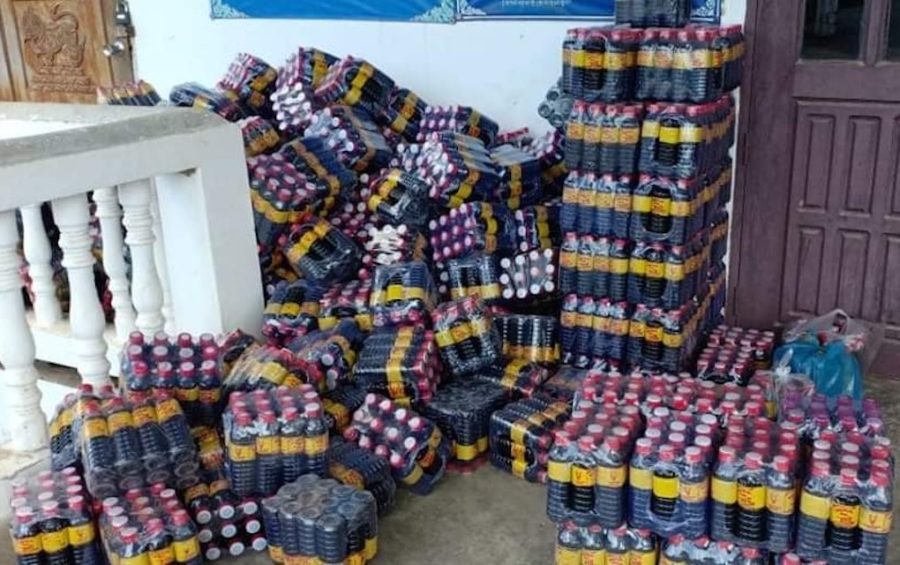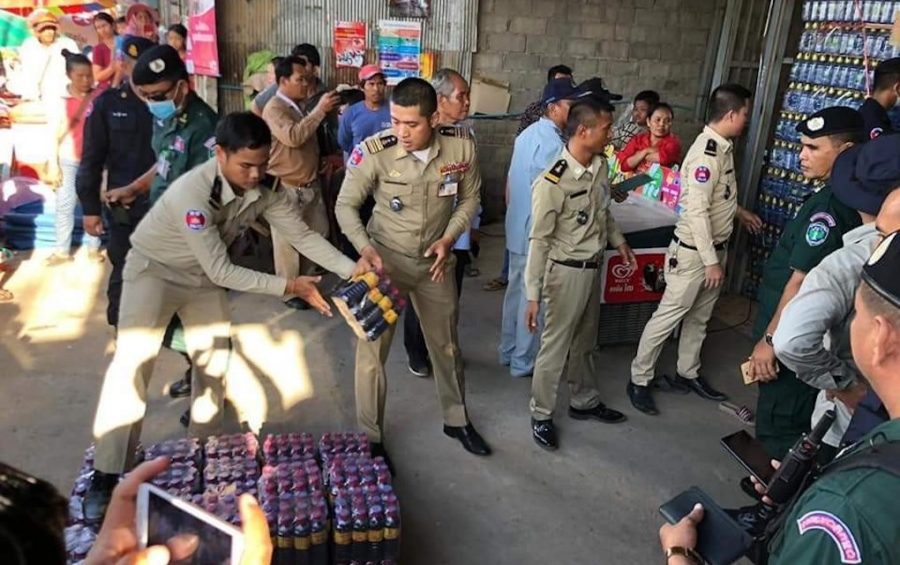The manufacturer of a methanol-laced wine that killed seven people and made 36 others sick earlier this year has “completely escaped,” police said, while various other state institutions said that the case was out of their hands or that food poisonings were not their responsibility.
Khchao Sovann, the alleged producer of tainted herbal wine “Taing Kuoy,” has been wanted by authorities for more than three months, but “there is nothing new,” said National Police spokesperson Chhay Kim Khoeun.
“Some cases are like searching for a needle in the sea. The authorities have tried very hard,” Kim Khoeun said. They are “very happy” when they can make an arrest, but in this case the suspect has “completely escaped,” he said.
“We lost information. We tried to solve it but to get all things as we wish … is impossible,” Kim Khoeun said, though he added that police were still looking to make an arrest.
The wine, produced in Phnom Penh, was found to contain between 13.5 and 15 percent methanol after a spate of poisonings in Banteay Meanchey province in June.
The Health Ministry issued a statement shortly after detailing the recurrence of such poisonings in Cambodia: Between 2015 and 2018, the country saw about 150 cases a year on average, killing a total of 59 people.
The provinces of Kampong Chhnang, Kampot, Kratie, Mondulkiri and Tbong Khmum had seen lethal cases, it said.
“Wine is still the main cause among many other food poisoning cases [causing] sickness and death,” the statement said.

Heng Mealy, the Commerce Ministry’s consumer protection, competition and fraud prevention chief for Phnom Penh, said authorities had shut down the workshop producing the wine, and all evidence was sent to the Banteay Meanchey Provincial Court in early August.
The unit would “wait and see what action the court will take next,” Mealy said.
Some 2,580 bottles of the drink, sold in half-liter bottles, were found near the Chroy Changva district house, he previously said.
Banteay Meanchey deputy prosecutor Teng Samay said the case was still with the prosecution, which had yet to file charges.
“If the reports from the authorities and laboratory are sent, showing that there is an issue related to the ingredients in this wine, the prosecution will decide to file a charge,” Samay said. “At this stage, we need to look for the suspect first — get the owner of the product to take responsibility first.”
Asked why the case was taking months to investigate, Samay said the prosecution and judicial police had to find clear infractions made by the accused.
“[We] are afraid of filing charges that will affect the honor and name of the producers,” he said.
Banteay Meanchey’s provincial industry department director, Nhil Bunthoeun, said work related to the manufacture of poisoned wines was not under his jurisdiction, but up to the commerce and health ministries.
Asked why wine poisonings keep happening, Bunthoeun said it was an issue of poor distribution oversight. “This is because of the lack of thorough control. It is not because of the manufacturer.”
Provincial health department director Le Chan Sangvath said poisoning cases were a matter for the commerce and industry ministries, not health authorities.
Tuy Sokneng, co-founder of consultancy Food Safety Group, said methanol-laced wines were typically made by manufacturers wanting to speed up production and increase profits.
“The substance that they include is not a substance for food,” Sokneng said. “If they put in a small amount, it will not affect people, but if they put more, it can affect [people’s health].”
Relevant state institutions had increased public awareness of food safety issues, but inspections of both imported and locally made products still needed to be improved, he said.













